National Trauma Informed Community Conference
03/05/2023 8:30 am to 03/05/2023 4:30 pm
Event Details
** This event has now passed **
After three years of online TICA events, the National Trauma Informed Care Network will be hosting a face to face event for our community to come together.
The following information about the conference is included in the tabs below:
- Agenda
- Speaker information and presentations to view
- The recording of the main conference room presentations
- Synopsis of breakout sessions and presentations to view
- Resources
- How to join the conversation on social media
The event was sponsored by NHS England. The North East North Cumbria Mental Health Clinical Network (NHSE) is the lead for the National TICA programme. It is proud to be working with its delivery partner AHSN NENC to host this significant milestone event.

The conference agenda can be viewed here
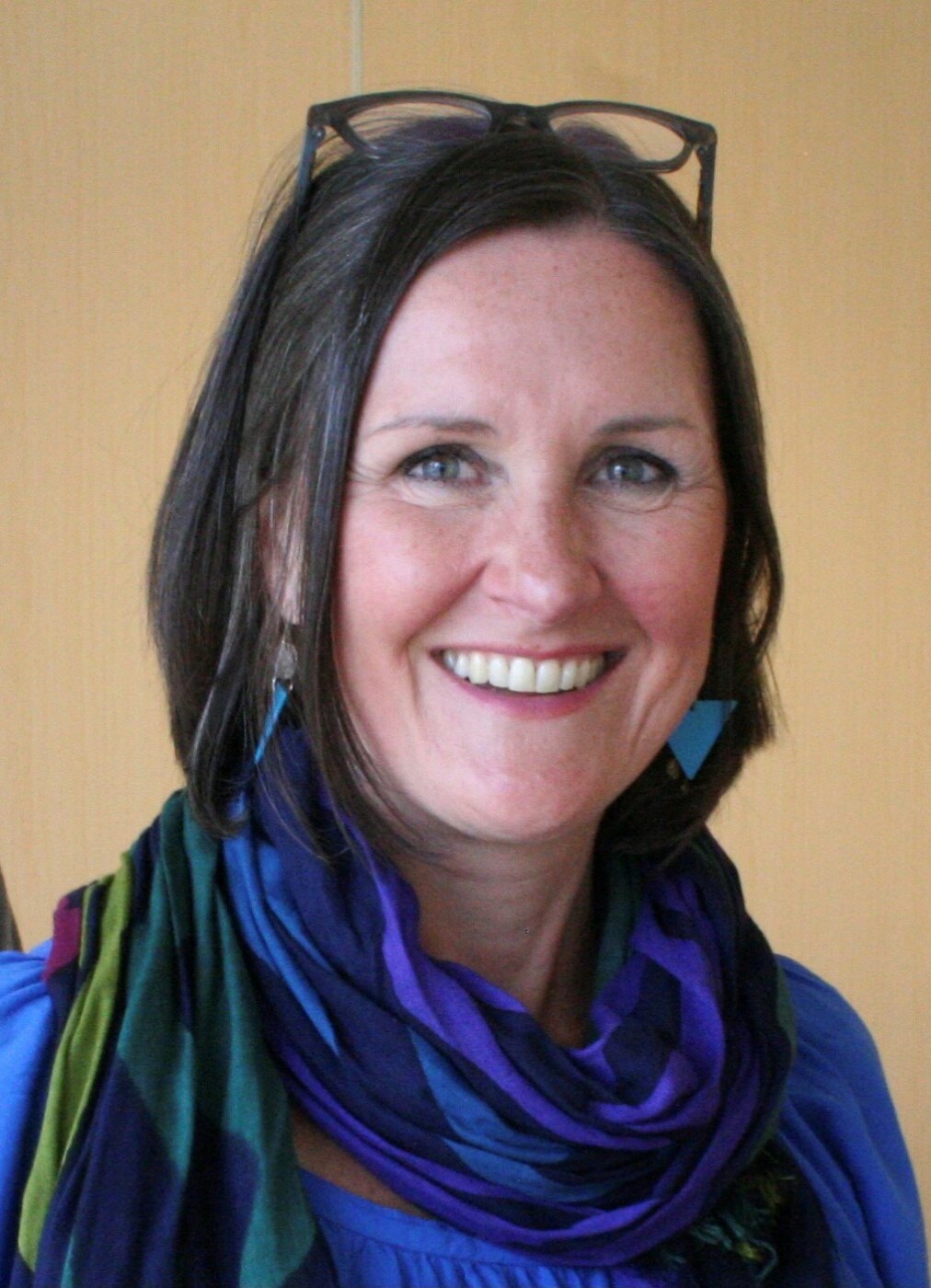 |
Dr Angela Kennedy is a Consultant Clinical Psychologist with 33 years’ experience of working in mental health. Her work has focused on the relationship of trauma to severe mental health problems, as well as issues of compassionate leadership and system transformation. The Trauma Informed Community of Action emerged from her efforts to bring people together towards change and inform best practice. More recently she set up the regional support services for staff during covid and her current research is focusing around staff experience of suicide, leadership, and various trauma related projects. She is passionate about using the arts and collective healing to support and connect communities. |
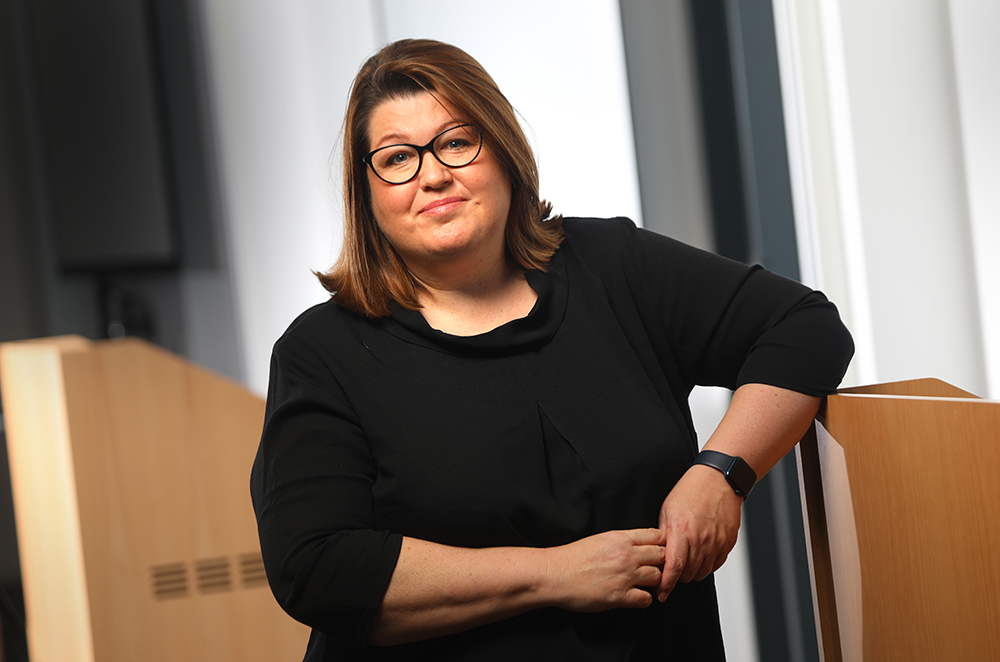 |
Samantha Allen – North East & North Cumbria Integrated Care Board Chief Executive
Samantha joined from the South East where she was Chief Executive of an NHS Mental Health and Learning Disability Trust for the last five years. Prior to this Samantha has worked in a range of operational management and leadership roles across healthcare. She is also Chair of the Health and Care Women Leaders Network at the NHS Confederation, a member of The Kings Fund General Advisory Council, St. George’s House Leadership Fellow, and a Trustee of the Chartered Management Institute. |
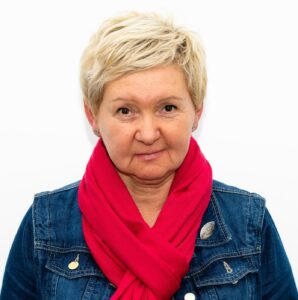 |
Dr Natalia Lewis is a Senior Research Fellow in Primary Care at Bristol Medical School. She is a health services researcher with a medical clinical background and expertise in trauma-informed approaches at the organisation/system level. Since 2019, Natalia has been leading a programme of research on trauma-informed organisational change interventions in primary care – the TAP CARE study. Her team conducted three systematic reviews and a policy review on this topic.
|
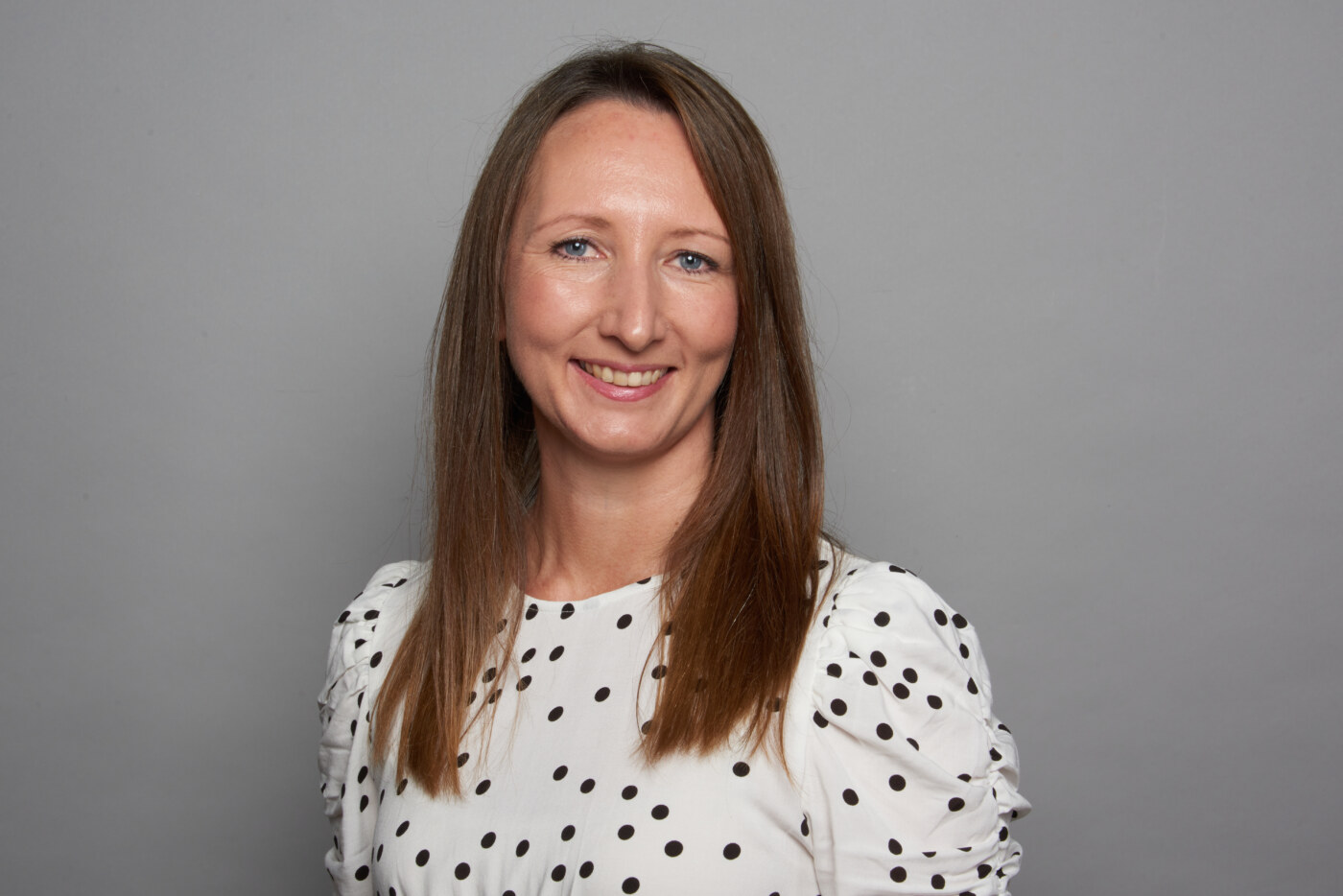 |
Dr Rachel Turnbull works in healthcare innovation leading regional projects in the North East of England. Originally qualified as a clinician with a Doctorate in Clinical Psychology Rachel has developed more than 12 years’ experience in project management and service improvement roles and has recently completed a degree in urban planning and architecture. Her interests lie in the connections between wellbeing and urban design and how to support the creation of healthy, happy, fun places where people and communities can thrive. Rachel is a co-creator of the programme, Healthy Happy Places, which is focussing specifically on how we can create positive mental health through the built environment by sharing expertise and knowledge between the NHS, public health, regeneration and planning, architecture, the arts and citizens. This is currently being tested and applied in practice to projects in the North East. |
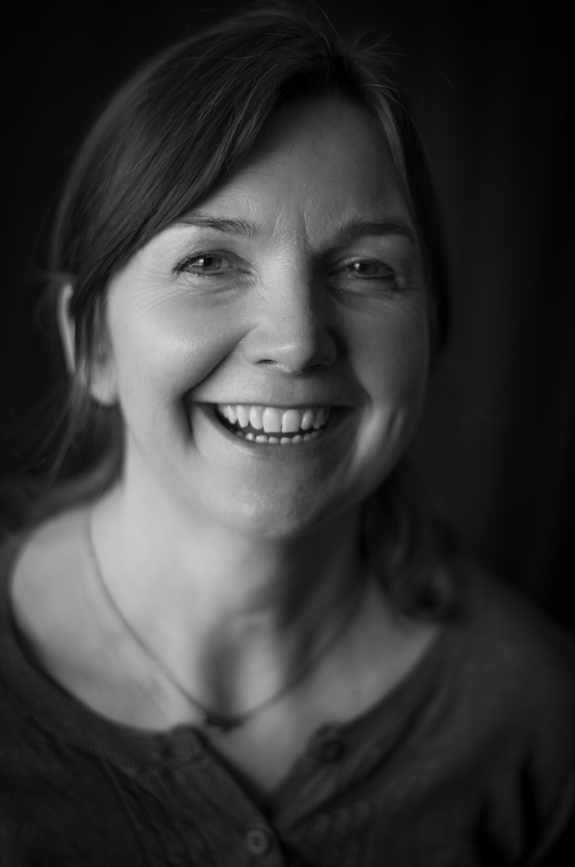 |
Dr Natalie Edelman has 25 years of experience as a health sciences mixed methods researcher, specialising in sexual & reproductive health, mental health and research methodological innovations including the Trauma and Resilience Informed Research Principles & Practices (TRIRPP) framework. She combines her research role at University of Brighton with independent work supporting services, clinicians and researchers to become trauma-informed. She is currently training as a Trauma-Informed coach and can be contacted at [email protected] to discuss a complementary session’. |
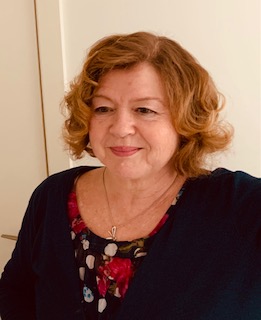 |
Claire Pooley will offer a “whistle-stop tour” of her team’s response to assisting staff through the Covid-19 pandemic and beyond.
She will cover:
Claire responded to a Government appeal for NHS returners. She had left the NHS setting in 1994. She became the Lead Therapist (bank), in April 2020 as the sole therapist and now has a team of 6 other trauma therapists, all trained in EMDR and G-TEP. The programme implemented included debriefing through staff narratives, G-REP, GTEP and recently, Flash-REP. It also offers 12 individual trauma therapy sessions to those who indicate highly on the IES scale and have been traumatised though their work setting. Claire is a Traumatologist, EMDR Consultant with Mental Health experience for the past 30 plus years, initially as a Registered Mental Health Nurse and qualifying as a therapist in 1990 (Senior Accredited BACP). She works mainly in private practise specialising in PTSD and also provides teaches on various PTSD courses to the police and Humanitarian teams and teaches on a Diploma in Relationship-based Supervision course. |
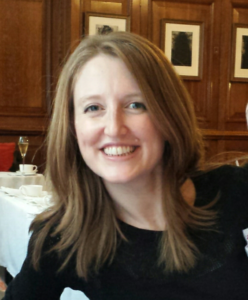 |
Dr Angela Sweeney is a trauma survivor and survivor researcher. She is Senior Lecturer in User-Led Research, Director of the Service User Research Enterprise (SURE), and Academic Lead for Service User Involvement in the Centre for Society and Mental Health, all at King’s College London. Angie has particular interests in gender-based violence, trauma and parenting, and trauma-informed approaches. Although a health services researcher, she originally studied social sciences, and sociological approaches continue to inform her work. |
 |
Sullivan Holderbach is a trauma survivor, artist, and Art Manager & Researcher at Traumascapes. He focuses on the development and facilitation of survivor-led, arts-facilitated, healing practices. His research aims to utilise creative practices as means to encourage and sustain health by renegotiating personal relationships and understandings of trauma. He completed his BA (Hons) in Drama and Theatre Arts at the University of Birmingham and his MASc in Creative Health at University College London. His practice is informed by his multi-nationality as well as his experiences working as a stagehand, performer, costume/set designer and stage manager in both the Festival of European Anglophone Theatrical Societies and the Edinburgh Festival Fringe. |
 |
Laura E. Fischer is a survivor researcher, lecturer, award-winning artist, and Founder & CEO of Traumascapes, a survivor-led organisation dedicated to changing the ecosystem of trauma and creating new horizons for survivors through art and science. Laura’s research explores creative and embodied approaches to healing; her art practice focuses on the reclaiming and rewriting of the sociocultural narrative of trauma; and her lectures look at the neurobiology of trauma, body-based interventions, trauma-informed practice, survivor research, creative health, and art as activism. She is a Visiting Research Associate at King’s College London, Visiting Lecturer at UCL and Queen Mary University of London, Data Monitoring and Ethics Committee Member for ATTUNE at the University of Oxford, and she serves on the Editorial Advisory Board of The Lancet Psychiatry. Laura has published, presented, and exhibited widely, and her artwork is in the Central Saint Martins Museum Collection. |
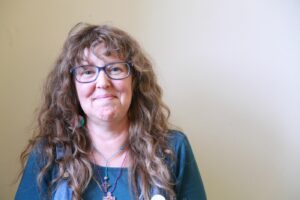 |
Jane Chevous is an abuse survivor-researcher, writer, educator and activist. She leads Survivors Voices, a survivor-led organisation that turns the pain of abuse into the power to transform trauma. She co-led the creation the Survivor Charter and the Survivor Research Involvement Ladder, and the Abuse Survivor Researcher Network. She is a member of the Society for Education and Training (SET), the Violence, Abuse & Mental Health Network (VAMHN), an associate researcher with King’s College London, and represents survivors on the Church of England National Safeguarding Panel, and their Redress Scheme Working Group. A writer publishing on abuse and mental health, creative writing, spirituality and sailing, she explores all these themes at Barefoot Tales. |
 |
Dr Jo Jordan has over 20 years experience working in the field of physical health psychology and this is where her keen interest in staff well-being and Trauma informed approaches originated. For the last 2.5 years Jo has been the Clinical Lead for the Humber & North Yorkshire Resilience Hub, where she has supported and developed a series of initiatives around Trauma informed approaches, for both individuals, teams and organisations. Jo is particularly interested in developing pathways for support which incorporate both pro-active and reactive layers to trauma informed support for staff. Jo remains committed to supporting system wide collaborative thinking of Trauma Informed Care approaches. |
 |
Sally Jowett is a clinical psychologist originally from Manchester, UK who completed her Doctorate in Clinical Psychology with the Institute of Psychiatry, Psychology, and Neuroscience at King’s College London. She has a particular interest in addressing the barriers that people affected by trauma can face in relation to well-being, life opportunities and provision of services. Sally works as a Principal Educator with the National Trauma Training Programme (NTTP) within NHS Education for Scotland (NES) to develop and deliver educational resources that support the development of a trauma-informed workforce that can facilitate access to services for those affected by trauma. Sally works part-time clinically within the Glasgow Psychological Trauma Service as a Lead for Victims of Trafficking in NHS Greater Glasgow and Clyde and is a research associate with Edinburgh Napier University. |
 |
Laura James currently works at the Improvement Service and leads work to support Scottish local authorities and key community planning partners embed a trauma-informed approach across organisations, systems and workforces. In previous roles, she has worked in the violence against women sector, including coordinating a network of projects that support children who have experienced domestic abuse. Laura holds a humanities PhD and is a board member for Zero Tolerance. |
| Vikki Price is a PhD student at the School of Law at the University of Sunderland. Her specialist area is mental health and international human rights law. A former public sector worker in policing and the NHS, she is now the managing director of Peer Hub CIC, a social enterprise providing user-led training and consultancy services in peer support, trauma informed care and service strategy. | |
 |
Dr David Harvey is a consultant clinical psychologist and CAT practitioner. He is currently employed as Clinical Director for specialised commissioning in the NHS. His clinical experience has largely been with people who have experiences of psychosis or whose difficulties may mean they are likely to receive a diagnosis of ‘personality disorder’. This has been in the NHS, Probation, Courts, Local Authorities, Prisons and the voluntary sector. Over time his work has focused increasingly on how we can use psychological models of trauma, especially the Cognitive Analytic model, to inform and guide the actions of those tasked with leadership across systems where there are complex needs and high risks. |
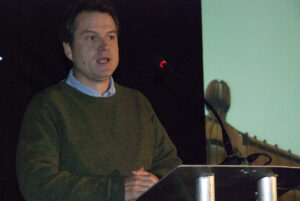 |
Peter is a recognised national leader in working with victims of sexual violence and trauma who disclose this both within the custodial setting and mental health arena, and he has presented his work at a number of national and international conferences.
Peter has become a leading figure in prison counselling and Chair of the Counselling in Prisons Network (CiPN) since 2007, founded by him 16 years ago. In 2011 he published his first book, which is a useful training resource for the treatment of men who suffered from sexual abuse and trauma. Peter went on to publish two further books, working to change the criminal justice approach from ‘dealing with and fixing’ prisoners to ‘understanding and working with’ prisoners. The CiPN is now regarded as a leading authority on sharing publications, good-practice guidelines, and other health-related prison information. Peter’s ground-breaking work throughout his career has earned him several accolades, including, most recently, the Prestige Award for Counselling Service of the Year, recognising his contribution to the field. |
 |
Graham Towl is Professor of Forensic Psychology at Durham University. He has worked in prisons and psychiatric hospitals. He was formerly the Chief Psychologist at the Ministry of Justice. He has published widely on mental health and particularly in the area of prisoner suicide and more recently on sexual violence at universities. |
| Gloria is a Researcher and Part-Time PhD student at Durham University. She has experience and a background in both Clinical and Forensic psychiatric settings. She is a keen advocate in patient/service users’ rights and, through empirical research, voicing their views in making key systemic changes. The topic of her PhD is on the use of restraints in secure psychiatric services. | |
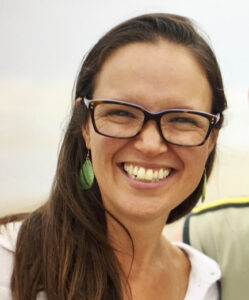 |
Tiane is a Brazilian person-centred psychologist with an MSc in Counselling with over twenty years practising in diverse contexts. She has worked in London since 2005 in the areas of substance misuse, mental health, and family and young people’s support. She has a passion for inclusive and empowering practices and communities, and ACEs and trauma-informed care have been an important focus of her work in recent years. She is one of the founders of the London ACEs Hub (LAH) and has been proactively involved in developing the network and its activities since the creation of the group in 2019. In July 2021, Tiane became one of the founding directors of the LAH Community Interest Company. She remains committed to making the LAH a lively and creative organic network that nurtures and welcomes multiple voices and promotes ACEs awareness and resilience throughout London’s communities and beyond. |
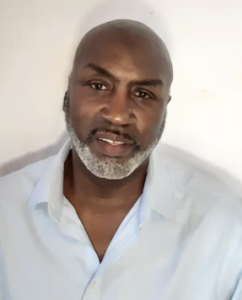 |
Derek ‘Sweet D’ Williams is a former heavyweight boxing champion of Europe and Commonwealth, and is currently the President of the Diversity and Equalities Boxing Forum, which was formed following the rise of the Black Lives Matter campaign to advocate for boxers who are under-represented. Derek is also a community leader and activities, Motivational Speaker, and a Therapeutic Wellbeing Practitioner. He set up the Parents Against Crime (PAC) Campaign to tackle youth violence especially in the local communities and ending the County Lines operations. He is the Chairman of The Pedro Youth Club, which is one of the oldest clubs of its type in London, and has created the Champion Mindset Programme to empower young people. Derek has been proactively helping the London ACEs Hub reach more hearts and minds, via his role in the Coordinating Group, and as a Lead of the Racial Justice Workgroup. |
 |
Dr Jessica Komes is a Lecturer and Deputy Programme Director for the MSc Clinical Psychology at Newcastle University. She specialises in interoception, i.e. how the body and the brain co-create the sense of self. Her expertise developed from her PhD in cognitive neuroscience, extensive yoga teacher training (accredited by the European Yoga Union with 880hr over 4 years), and clinical training (Psychosynthesis Psychotherapy, UKCP). As a treatment developer and experienced body-integrative therapist she has been working in mental health care settings in Germany and the UK since 2013. In her counselling and psychotherapy practice she uses somatic and trauma-sensitive approaches.
With her session Trauma and the Body Jess will deliver an overview of current theory and research on embodiment and interoception, i.e. the process by which the nervous system senses the internal world of the body. She will show how trauma impacts the communication between brain and body and how ‘somatic errors’ lead to a disruption of body connection and consequently a disembodied self. She will highlight the role of the felt sense and how to help clients re-establish enough safety to live in and through their bodies. The session will encompass clinical vignettes to illustrate how body-based approaches can be integrated in individual and group (talking) therapy settings. She will offer an experiential understanding of the dynamics between body, mind, self via short practices and encourages questions and discussion to complement the session. |
Session One
Prompting conversations about trauma and abuse
Dr Angela Sweeney, Senior Lecturer in User Led Research,Kings College London
Jane Chevous, Survivors Voice
Sullivan Holderbach ,Art Manager & Researcher,Traumascapes CIC
Laura E. Fischer, Founder & CEO,Traumascapes CIC
In recent research, we found that public awareness of abuse, and wide recognition of the signs of abuse, are priorities for survivors. In response to this, we formed a survivor Arts Collective with whom we generated artworks to facilitate discussions to support abuse recognition. In this session, we will explore the role of art in facilitating difficult conversations surrounding abuse and trauma, and present and discuss a card deck which features the artworks, reflective prompts and safety guidelines.
Dr Angela Kennedy
Dr Jo Jordan,Consultant Clinical Applied Psychologist Clinical Lead: Humber & North Yorkshire Resilience Hub,Tees, Esk & Wear Valleys NHS Foundation Trust
We will be looking at a few ways that a trauma informed approach can be applied to staff health. The regional staff wellbeing hubs were set up during covid to support the mental health of staff. Examples and principles from three of these hubs will be discussed.
Scotland’s Trauma Informed Nation Learning
Dr Sally Jowett, Principal Educator, National Trauma Training Programme
Dr Laura James, National Improvement Lead Trauma, Improvement Service
The experience and impact of trauma and adversity in the lives of Scottish people is more pervasive than has previously been recognised, and recently this has been exacerbated by the COVID pandemic and cost of living crisis. The National Trauma Training Programme (NTTP) supports the shared ambition of the Scottish Government, COSLA and partners from across Scotland of a trauma informed and responsive nation and workforce that is capable of recognising where people are affected by trauma and adversity, able to respond in ways that prevent further harm while supporting recovery, and can address inequalities & improve life chances. This workshop will provide an overview of the NTTP and share learning from the range of training and implementation work taking place across Scotland in the journey to developing trauma-informed organisations, systems and workforces.
https://transformingpsychologicaltrauma.scot/traumainformedjustice/framework-and-executive-summary/
Human Rights
Vikki Price, Managing Director, Peer Hub CIC
This workshop will consider the overlaps between trauma informed approaches and human rights. It will look at the underpinning principles of international human rights since the United Nations Universal Declaration of Human Rights in 1948, including self-determination, human dignity and anti-discrimination, with a particular focus on the conditions that give rise to dehumanisation. It will consider the parallels between the conditions for torture, inhuman, cruel and degrading treatment reported by the UN Rapporteur for Torture and those that have arisen in high profile mental health sector media exposes. It will engage workshop attendees to understand the role of human working in systems in protecting people from dehumanisation, and the role of trauma informed approaches in creating work environments that protect the rights of service users, their families and staff.
Session Two
Working with people in the justice system
Dr David Harvey,Consultant Clinical Psychologist and Cognitive Analytic Therapist & Trainer, formerly, Humber Teaching NHS Foundation Trust and now Gibraltar Health Authority
Peter Jones, Chair: Growing Compassionate Communities, Chair: Counselling in Prisons Network
Working Therapeutically in the Criminal Justice System: This presentation will set the scene with Nelson Mandela’s Rules for Prisons. It will then explore the ethical framework published by the Counselling in Prisons Network to inform practice and ethical working. It will then focus on imported distress and other models of practice and frameworks and draw upon the Male Sexual Abuse and Trauma Training manual (Peter Jones 2010).
Graham Towl, Professor of Forensic Psychology, Durham University
Gloria Lui, Durham University
Working with People in the Justice System
Mental health environments can lead to the need for some measure of physical restraint – always a last resort – but such needs do arise. We will outline and discuss what we can learn about the uses of restraint in a forensic mental health setting. In particular we share some of our thoughts on what an emergent trauma informed approach to such methods looks like – and we invite a broader discussion on that especially in view of the backgrounds and developmental pathways of many such patients/clients.
Creative and collective healing through culture and the arts
Laura Fischer Founder & CEO, Traumascapes CIC, Editorial Advisory Board, The Lancet Psychiatry, Honorary Research Associate & Seminar Lead, King’s College London, Honorary Research Associate, UCL Visiting Lecturer, MASc Creative Health, UCL Visiting Lecturer, MSc Creative Arts and Mental Health, QMUL Involvement Lead, NIHR ARC National Priorities: Mental Health Implementation Network, Data Monitoring and Ethics Committee, ATTUNE, University of Oxford
To unravel the convoluted and layered impacts of trauma, we must adopt equally complex and multifaceted approaches: creativity permits this. Trauma survivors have both personally and collectively used the arts to explore, express, and heal by reclaiming power and working through the body, where trauma leaves its imprint. Through talks, short films, and creative invitations, our session will explore – both conceptually and practically – how trauma-informed creative practices can rewrite the sociocultural narrative of trauma, foster collective healing, and boldly reimagine our way forward. Drawing on our work at Traumascapes, we will consider the present landscape, including challenges and opportunities, and the healing horizons we can create together.
London ACEs Hub: Connecting dots and spreading seeds
Tiane Graziottin, Operational Director & Co-Chair, London ACEs Hub Community Interest Company
Derek Williams, LAH Racial Justice Workgroup Lead
This workshop will offer an opportunity for participants to learn from the London ACEs Hub’s (LAH) experience of building an independent network of survivors, community advocates, and multidisciplinary professionals.
It will address the joys and challenges of:
– developing an organic and diverse network,
– creating participatory processes, including the Racial Justice Workgroup,
– becoming a Community Interest Company (CIC) whilst maintaining core principles,
– Promoting system change – e.g. Trauma-Informed and ACE-Aware Safeguarding Policy and Procedures.
Dr Jessi Komes, Lecturer & Deputy Programme Director
MSc Foundations in Clinical Psychology
International Tutor PGT Programmes Population and Health Sciences Institute
Translational and Clinical Research Institute, School of Psychology, Newcastle University
With her session Trauma and the Body Jess will deliver an overview of current theory and research on embodiment and interoception, i.e. the process by which the nervous system senses the internal world of the body. She will show how trauma impacts the communication between brain and body and how ‘somatic errors’ lead to a disruption of body connection and consequently a disembodied self. She will highlight the role of the felt sense and how to help clients re-establish enough safety to live in and through their bodies. The session will encompass clinical vignettes to illustrate how body-based approaches can be integrated in individual and group (talking) therapy settings. She will offer an experiential understanding of the dynamics between body, mind, self via short practices and encourages questions and discussion to complement the session.
Join the conversation on social media using #TICACon23
